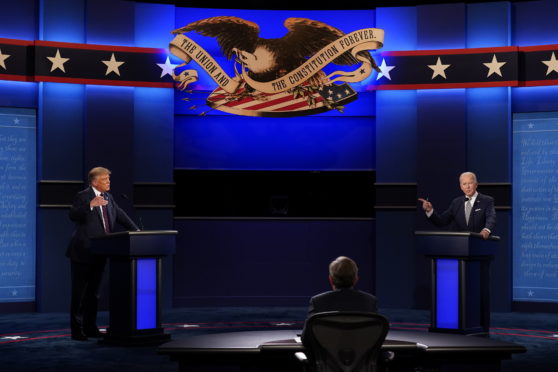I had barely put pen to paper in a previous article roasting our members of Parliament for failing to debate issues rather than simply chanting their party’s mantra when I witnessed where this sort of behaviour leads.
It was a live so-called “debate” between two older men who completely ignored the chair and simply threw childish insults at each other. Bad enough, until you realise both of these men hoped to be the next president of the United States. It was embarrassing to watch.
People often ask me why the main political parties can’t work together instead of opposing each other. Well surprisingly, in my experience, they do. About 80% of the issues raised in either parliament or at local authority level generally receive cross-party support.
But there are key issues that arise where there is a clear difference of approach to certain matters. These are the issues which each party sets out in its manifesto. That is your opportunity to decide which set of proposals you agree with. And choice is always a good thing.
Nationally, both main parties want an efficient railway system. The difference is how it’s achieved. The Conservatives want it run by franchising each service to the private sector, but the Labour Party would want to see it under state control.
How political parties handle the economy is also very different. At budget time, councils make decisions on where and how money is spent locally. Some would want more money put into our dilapidated roads system. Others would prefer that money be spent in social services for older people, disadvantaged families and the disabled. These are areas for discussion.
Similar arguments arise over such things as whether we should create more parking in the city to encourage shoppers, or seek to keep cars and other vehicles out of our centre and encourage public transport, improving our environment and our health. Both aims are designed to enhance our city, but which is the better option is a matter for debate.
We need to encourage debate and hear the facts so we can decide which option is closest to what we believe. Voting on how you feel about issues chooses your government. Then you can hold them and their manifesto promises to account. The important thing is that with manifestos, people have a choice.
The only time this doesn’t work is in coalitions. The reason is that in order to form a coalition, negotiations are required and the parties involved will have to sacrifice something to agree a position.
In the Cameron coalition government the Conservatives conceded the need to increase the allowance before tax is deducted. The Lib-Dems lost out on proportional representation and U-turned by imposing university tuition fees.
The great thing about democracy is that if you feel our politicians have let you down, they can always be removed at the next election.
The bottom line for me is that most people come into politics to improve things, but their methods of achieving this will be different.
I recall a local business had serious cashflow problems. That meant laying people off. The dilemma for the council was, do we let it go to the wall or do we find the cash to support it? There were 114 employees’ jobs at stake.
After a debate the council agreed that supporting those employees and their families was the best option.
The issue was raised with First Minister Jack McConnell and we were able to negotiate a £1 million subsidy. That secured those 114 jobs and gave the families income to spend locally.
As fate would have it, two years later the company folded. However, I believe we had taken the right decision.
Some would say that was a waste of money, but these are the decisions you have to discuss and resolve without knowing what the future holds. Hence the importance of arguing your case and opening it up for scrutiny. This is a far better approach than politicians appearing on our TV screens and simply repeating a party line which tells us nothing.
Discussion is a good thing. Choice is important. Public involvement is always welcome. But it’s also worth reminding people good ideas are refreshing. They are not the property of political parties. Good ideas are always crucial and should be embraced regardless of their source. That’s what makes politics exciting and encourages the public to get out and vote for the future.
Len Ironside is a former champion wrestler who served as an Aberdeen councillor for 35 years, four of them as council leader

